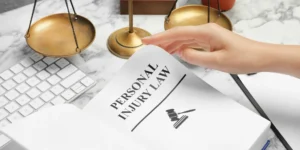1. Seek Immediate Medical Attention
Your first responsibility is to prioritise your health. Any injury, however minor it may initially appear, should be assessed by a medical professional. Accurate and consistent medical records will help to evidence both the severity and duration of your injuries.
2. Gather Witness Details
Obtain the full names and contact information of anyone who witnessed the incident. Under civil law, corroborative witness statements can be invaluable in substantiating the facts of a claim.
3. Identify Any Available CCTV or Dashcam Footage
Where possible, ascertain if the incident was captured on CCTV or dashcam. Such evidence can play a crucial role in determining liability and supporting your case.
4. Document the Incident and Its Consequences
Take photographs of the scene, your injuries, and any property damage. Where the incident occurs in a workplace or public venue, ensure that an official accident report is completed and request a copy for your records.
5. Keep a Detailed Record of Financial Losses
Under English law, claimants are entitled to recover reasonable financial losses directly attributable to the incident.
This may include:
- Loss of earnings
- Medical expenses
- Travel costs for treatment
- Care and assistance fees
6. Maintain Regular Contact with Your Solicitors
It is important to keep your solicitor informed of all symptoms and developments in your condition.
7. Be Truthful and Transparent with Your Solicitor
Full disclosure is essential in all legal matters. Any attempt to withhold or misrepresent information, or exaggerate your injuries, may negatively impact your claim and, in serious cases, may expose you to significant legal consequences. Your solicitor can only provide appropriate advice and representation if they are in possession of the full and accurate facts.






